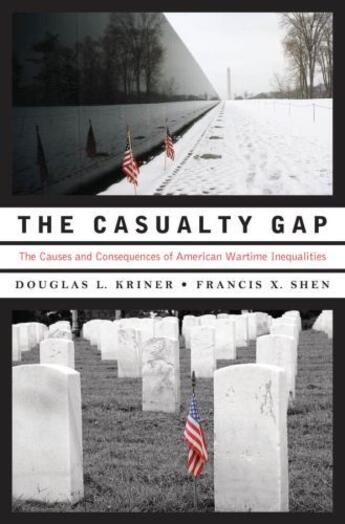-
Nombre de pages : (-)
-
Collection :
(-)
-
Genre :
(-)
-
Thème :
Non attribué
-
Prix littéraire(s) :
(-)
Résumé:
The Casualty Gap shows how the most important cost of American military campaigns--the loss of human life--has been paid disproportionately by poorer and less-educated communities since the 1950s. Drawing on a rich array of evidence, including National Archives data on the hometowns of more than... Voir plus
The Casualty Gap shows how the most important cost of American military campaigns--the loss of human life--has been paid disproportionately by poorer and less-educated communities since the 1950s. Drawing on a rich array of evidence, including National Archives data on the hometowns of more than 400,000 American soldiers killed in World War II, Korea, Vietnam, and Iraq, this book is the most ambitious inquiry to date into the distribution of American wartime casualties across the nation, the forces causing such inequalities to emerge, and their consequences for politics and democratic governance.
Although the most immediate costs of military sacrifice are borne by service members and their families, The Casualty Gap traces how wartime deaths also affect entire communities. Americans who see the high price war exacts on friends and neighbors are more likely to oppose a war and its leaders than residents of low-casualty communities. Moreover, extensive empirical evidence connects higher community casualty rates in Korea and Vietnam to lower levels of trust in government, interest in politics, and electoral and non-electoral participation. A series of original survey experiments finds that Americans informed of the casualty gap's existence will accept substantially fewer casualties that those who are not told about inequality in sacrifice.
By presenting a wealth of evidence and analysis, this book seeks both to bolster public awareness of casualty inequalities and to spur critical dialogue about the nation's policy response. The Casualty Gap should be read by all who care about the future of America's military and the effects of war on society and democracy.
Donner votre avis















